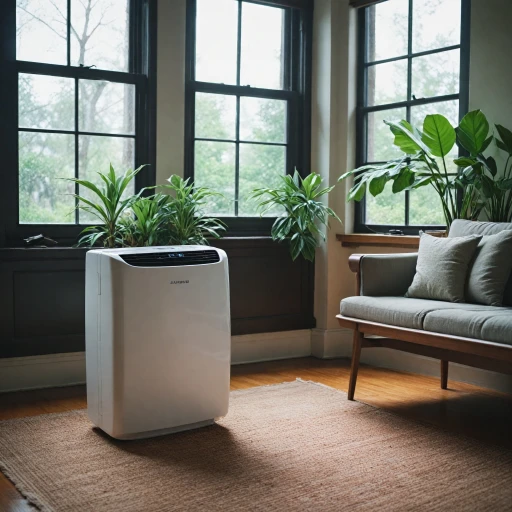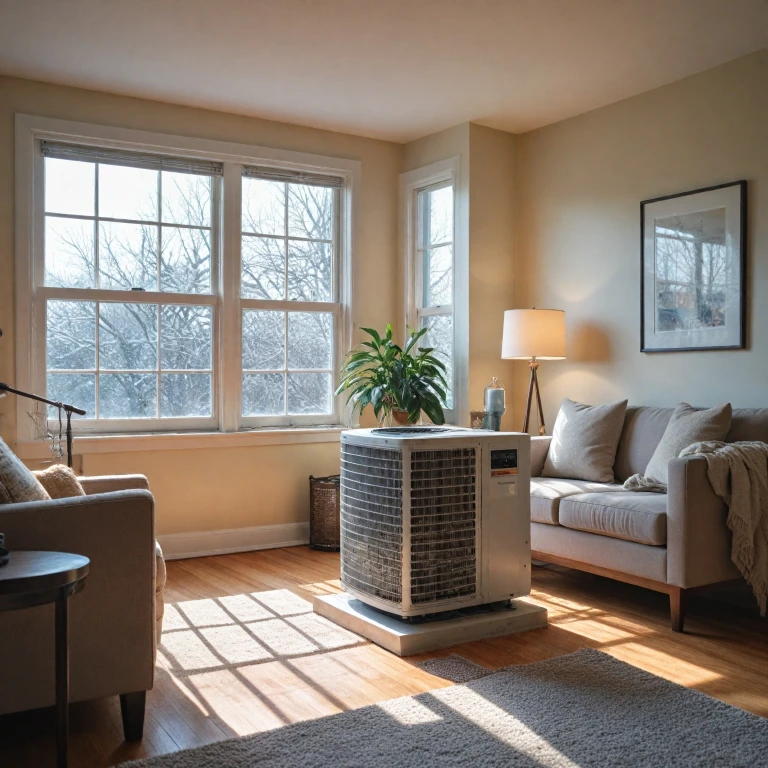What is a Heat Pump AC?
Understanding the Basics of Heat Pump Air Conditioning
A heat pump air conditioner is not just your average cooling solution. At its core, this system is designed to provide both heating and cooling, making it a versatile option for homeowners seeking year-round comfort. It functions by utilizing energy from the air—often referred to as an air source heat pump—to transfer heat rather than generating it directly. This process significantly enhances its efficiency, enabling it to achieve higher energy star ratings when compared to traditional systems.
Heat pumps work on a simple yet powerful principle: the transfer of heat. During the warm summer months, a heat pump system transfers heat from inside your home to the outdoor unit, effectively cooling your environment. Conversely, when the temperatures drop, the system reverses its operation by collecting heat from the outdoor air—even in a cold climate—and releasing it inside. This adaptability allows equipment to operate efficiently across various temperature settings, providing both heating and cooling as needed.
Efficiency is a hallmark feature of heat pump air conditioners, underscored by their seer efficiency rating standards. The Seasonal Energy Efficiency Ratio (SEER) indicates how efficiently a system operates, with higher ratings signifying better efficiency and a more significant potential for cost savings.
It’s important to note that several factors play into the efficiency and effectiveness of these systems, including the type of refrigerant used, the cooling capacity of the unit, and the overall system design. Overall, these elements contribute to an energy-efficient solution that can lead to potential tax credits and savings on utility bills while maintaining optimal comfort year-round.
For those considering an upgrade, further exploration into the benefits and comparisons between various systems can offer substantial insights into finding the perfect compact portable air conditioner to match specific needs. To delve deeper into the options and make an informed decision, visit
Portable Air Conditioner Guru Blog.
Advantages of Using a Heat Pump AC
Why Opt for Heat Pump Air Conditioners?
Heat pump air conditioners are imbued with several attributes that elevate their status over conventional cooling systems. Known for their energy efficiency and multifunctional use, these systems offer compelling advantages.
- Energy Efficiency: Heat pumps boast an impressive efficiency rating, often indicated by their SEER (Seasonal Energy Efficiency Ratio) rating. This high efficiency contributes to reduced energy costs during both heating and cooling modes. Additionally, systems with an Energy Star rating further ensure optimal performance with minimal energy consumption.
- Dual Functionality: Unlike traditional air conditioners, heat pumps serve a dual purpose by efficiently handling both heating and cooling tasks. They work by transferring heat energy, and can therefore reverse this process when the climate demands warmth, providing ongoing comfort throughout the year. This makes them particularly advantageous in maintaining a consistent indoor environment regardless of outdoor temperatures.
- Environmental Benefits: Operating with refrigerants that have less environmental impact, these systems aid in reducing greenhouse gas emissions. Those equipped with air source pumps are particularly acclaimed for their eco-friendly attributes, subcontracting less gas and promoting a greener climate.
- Cost Benefits: In many regions, heat pump users may also qualify for tax credits and rebates, which can significantly offset the initial investment. This financial incentive, coupled with savings from reduced energy bills, underscores the economic appeal of heat pumps.
Choosing the right compact portable air conditioner involves considering these features to ensure it aligns with your heating and cooling needs efficiently. For further insights, check out this
guide on selecting the best compact portable air conditioner.
Comparing Heat Pump ACs to Traditional Air Conditioners
Evaluating Efficiency and Cost-Effectiveness of Heat Pump Air Conditioners
When comparing heat pump air conditioners to traditional AC systems, several key factors distinguish them, particularly in terms of energy efficiency and cost savings. Heat pump ACs utilize a system that moves heat from one location to another, making them more energy-efficient. This function allows them not only to cool your home during hot months but also to provide heating during colder periods.
With an energy star rating, heat pumps excel in minimizing operational costs by offering higher efficiency ratings compared to conventional air conditioners. High SEER (Seasonal Energy Efficiency Ratio) is a crucial indicator, where a higher SEER efficiency rating denotes a more energy-efficient unit. This means lower electric bills and reduced environmental impact over time, making them an attractive option for eco-conscious consumers.
The ability of heat pumps to work efficiently in heat or cold climates further adds to their versatility. These systems can effectively perform in various conditions, providing comfort throughout the year. Compared to traditional air conditioners, which often depend solely on refrigerant cycles to cool air, heat pump systems transfer heat, utilizing less energy in the process.
Another significant advantage is the eligibility for certain tax credits due to their energy-efficient nature. These incentives can help offset the initial costs of purchasing and installing a heat pump air conditioner, making them a more cost-effective choice in the long term.
For more detailed information about how heat pump air conditioners operate or compare them to similar systems like
mini split AC and heating systems, exploring additional resources can provide valuable insights.
Overall, when evaluating an air conditioning system for your home, considering both the immediate costs and long-term savings associated with energy efficiency should guide your decision-making process.
Choosing the Right Portable Heat Pump AC
How to select the optimal portable heat pump AC
Choosing the right portable heat pump air conditioner requires understanding several key factors. The decision is crucial to ensure that you obtain maximum efficiency and comfort from your heating and cooling system. Here are some criteria to consider:
- Cooling and Heating Capacity: Be sure to check the cooling capacity of the unit, often measured in BTUs (British Thermal Units). Ideally, the BTU rating of the unit should match the size of the space you plan to use it in. In general, a higher rating will be necessary for larger rooms, whereas smaller spaces will require less capacity.
- Energy Efficiency Rating: Look for units with a high SEER (Seasonal Energy Efficiency Ratio) efficiency rating and an Energy Star certification. These ratings ensure that the heat pump will operate efficiently, helping to reduce energy consumption and potentially qualify you for tax credits. Highly efficient models effectively transfer heat, saving on operating costs.
- Climate Considerations: Consider the climate of your area. For a cold climate, ensure the portable heat pump has a high-efficiency heating mode to provide warmth during chilly days. This is crucial as efficiency varies widely depending on the ambient temperature.
- Type of Refrigerant: Check the type of refrigerant used in the potential model. Modern units typically use environmentally friendly refrigerants that comply with regulations to minimize ozone depletion.
- Outdoor Unit Compatibility: Pay attention to whether the unit requires an outdoor component. Some portable heat pump ACs need an outdoor unit to work effectively, impacting the ease of installation and overall footprint.
- Noise Levels: For comfort, consider how quietly the system operates. Low noise levels lead to a more pleasant indoor environment.
- Overall Design and Integration: Choose a model that integrates well with your existing indoor setup, offering a comfortable and aesthetic blend.
By carefully analyzing these factors, you can make an informed decision and invest in a system that offers both efficient heating and cooling tailored to your specific needs.
Installation and Maintenance Tips
Ensuring Ease of Installation and Regular Upkeep
When it comes to portable heat pump air conditioners, the installation and maintenance are crucial elements that can significantly impact your device's performance. These systems are designed for user convenience, yet there are essential aspects to consider to enhance the efficiency and longevity of your portable unit.
Start by selecting a location that allows the heat pump system to work effectively. The portable unit should be placed where it has access to both the internal air space and the outdoor environment for optimal heating and cooling capacity. Ensure that the outdoor unit, if applicable, can efficiently expel air, which is essential for cooling and maintaining high efficiency ratings.
For installation:
- Airflow Space: Ensure the area around the unit is clear to promote airflow, aiding in the transfer of heat.
- Ventilation: Easy access to a window or vent is crucial, as the system needs an outlet for the carry-away air.
- Secure Fit: Flexible vent hoses should be properly attached and sealed to prevent any heat or cold loss.
Regular maintenance ensures the unit maintains its energy efficiency and remains compliant with any applicable energy star ratings or standards. This is also essential for prolonging the system's service life:
- Filter Cleaning and Replacement: Clean the air filters regularly to keep the system running smoothly and efficiently, especially in dense urban settings or dust-prone environments.
- Refrigerant Levels: Check the refrigerant periodically. The correct level is vital for the cooling mode's efficiency and ensuring the heat pumps deliver heat adequately.
- Timing for Professional Servicing: A routine check by a professional could help identify any underlying issues that might impact the SEER efficiency and overall comfort.
In addition to these steps, familiarizing yourself with common challenges can help in quick troubleshooting, reducing system downtime, and ensuring reliable delivery of heating and cooling in variable climates. Keeping this guidance in mind will help your portable air source heat pump perform at its best, offering both warmth and comfort during cold climates and efficient cooling when temperatures rise.
Common Challenges and Solutions
Typical Issues and Solutions for Portable Heat Pump Air Conditioners
Portable heat pump air conditioners are known for their energy efficiency and the dual function of heating and cooling, making them a popular choice for many households. However, like any appliance, they can face some challenges. Understanding these potential issues and their solutions can help you maintain the efficient operation of your unit.
Fluctuating Energy Efficiency
To ensure high efficiency, regularly check the SEER (Seasonal Energy Efficiency Ratio) rating for your unit. Units with a high SEER efficiency perform better and consume less electricity over time. If you notice an increase in energy consumption, it might be due to dirty air filters or an incorrect SEER rating interpretation. Cleaning or replacing air filters and ensuring your unit matches the required rating can improve efficiency.
Inadequate Heating or Cooling Capacity
Portable heat pump systems may struggle if they are not properly matched to the space’s size or climate conditions. Ensure that the cooling capacity is suitable for your room and that the system is equipped to handle cold climates. Lack of adequate heating or cooling might also be caused by improper installation or refrigerant issues. Professional assessment and adjustment can typically resolve these problems.
System Leaks and Refrigerant Issues
Refrigerant leaks are a common issue that reduces the efficiency of your heat pump and can cause the system to stop cooling effectively. If you suspect a leak or experience cooling loss, contact a certified technician to inspect the refrigerant levels and perform necessary repairs. Keeping the system sealed tight guarantees optimal performance and energy savings.
Frost Buildup on the Outdoor Unit
In colder climates, frost can build up on the outdoor unit, affecting the unit's ability to transfer heat. Ensure that the automatic defrost mode is functioning properly. If frost buildup continues, you may need to call a professional to adjust or repair your unit to maintain comfort and efficiency.
Regular maintenance and attentive monitoring of your portable heat pump air conditioner can prevent many common problems. Addressing issues early can enhance your system's longevity and sustain its energy-efficient performance.

